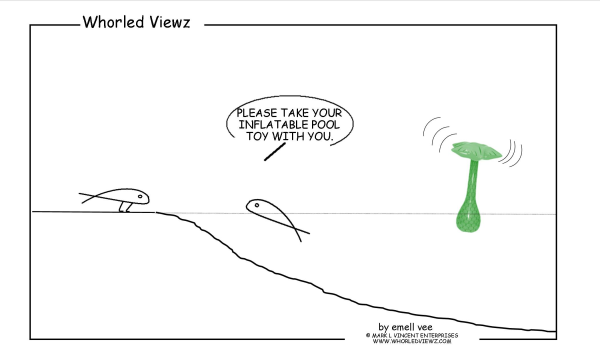Welcome to our occasional series of interviews, "5 Questions With..."
Laurie J. Ferguson Ph.D works as a consultant and coach to help build resilience in individuals and organizations. She brings analytical tools, a relational intelligence, and an ability to motivate for action. Her vocational background is as a parish pastor, and a psychologist. One of her primary interests is in how Jungian psychological ideas can be applied to systems and used in the work of coaching. She lives outside Manhattan in the Hudson River Valley.
and organizations. She brings analytical tools, a relational intelligence, and an ability to motivate for action. Her vocational background is as a parish pastor, and a psychologist. One of her primary interests is in how Jungian psychological ideas can be applied to systems and used in the work of coaching. She lives outside Manhattan in the Hudson River Valley.
She can be reached at info@lauriejferguson.com or by phone at 845.398.1174
In this interview we learn about resilient leaders.
1. You've done a lot of research on resilience, paticularly resilient leaders. What are the essential insights you've gleaned?
One of the marks of a resilient leader is a willingness to stay engaged, even in difficult or stressful times. These leaders live the Japanese proverb, "Fall down nine times, get up ten times." Resilience has been defined as "the ability to persist in the face of challenges and bounce back from adversity." ( Reivich, K. and Seligman, M. (2011) Master Resilience training in the U.S. Army. American Psychologist, Vol. 66, No. 1, 25. ) But it is more than just perseverance. Resilient leaders have commitments to something larger than themselves--they have a purpose and sense of meaning which supports and encourages their energetic engagement. In my experience, it is that larger commitment that provides the bounce.
2. Can a person and/or organization really learn to be resilient? Isn't this more a factor of inherent personality and, by extension, organizational culture?
The research suggests there are many factors contributing to resilience that can be learned. In psychology terms it is a state, not a trait. I think of individuals and organizations as having resilience reserves. These reserves can be spent down, and then built up. Some of the most compelling research on resilience is coming from a collaboration between the US military and the Penn Resilience program, which was founded by Martin Seligman at UPenn. They have designed a curriculum to do resilience training for soldiers, and have identified several significant factors that contribute to resilience. The capacity to be resilient resides in our attitudes and actions. Both can be trained in more positive and healthful directions.
3. Nassim Nicholas Taleb's book Antifragile maintains that resilience is not the opposite of fragile as many tend to think. He offers the idea that resilient means not yet broken, rather than made stronger by adversity. How does your work compare and contrast to what Taleb offers?
This is an interesting contrast. I have not read Antifragile, but my understanding of his argument is that we ( the general culture) have made organizations (and even relationships) more fragile by seeking to suppress volatility or randomness. This then makes systems more fragile or brittle. I suspect there is some truth to these assertions. I agree with his idea that resilience can mean "not yet broken" in that I see resilience as a reserve of energy and commitment, along with attitudes that support good outcomes. So, in my definition, resilience could be untested, or not reserves not spent down.
In my understanding, resilience does not mean that you necessarily come through adversity stronger. It is not like tempering metal. (or mettle!) Rather, we spend and build our resilience reserves. It is always possible that following an adverse event we may not be able to build up to where we were before. It is equally possible that we find we have more capacity than we imagined, and are not as affected by difficult encounters or losses as we feared. We may also learn better practices for creating and sustaining our resilience, regardless of difficulties.
4. What does a typical consultation look like for you in this arena and what are the intended outcomes?
There are several ways I have consulted with organizations around resilience. In one situation, the organization was downsizing, and wanted the remaining employes to understand that resilience was something they could learn and cultivate, even in the midst of dramatic shifts in organizational culture and expectations. I did a two day training in small groups, and had each employee create a practical application, tailored to their life and job description for where they could build some resilience in the midst of change.
The Church of Scotland has invited me to come for the past six years and do resilience training with faith leaders who work in their inner cities. I train them in the dynamics of how they can build and sustain their resilience, and then they receive coaching for six months. At the end of the coaching contract, we re-visit the learnings about resilience and review how they applied them in their lives and practice of ministry. It is always humbling and gratifying to see how they use the concepts in specific and life-altering ways. Almost to a one they report more energy and enthusiasm, deepened or renewed sense of call, and ability to weather the daily hassles with more ease.
In my individual coaching, these concepts are a part of how I help a leader think and reflect about themselves and their management of their organization.
5. If someone reading this were looking for one thing they might do to strengthen their capacity to manage future adversity, what would be a likely recommendation?
I like to use the lens of Salvatore Maddi's hardiness concepts. Maddi suggests that there are three attitudes that contribute to resilience: control, challenge, and commitment. One of my practices for myself, and with clients is to review these. Control is the feeling of being in charge--able to manage. What do you believe about yourself or the situation? Where can you get involved instead of distancing or freezing? What action can you take? Challenge is the area of life where we feel stretched, creative, and willing to risk. Many of us stop being challenged when we get to a certain success or comfort level, or when we feel tired and burned out. I love the quote from David Whyte's book. "The antidote to exhaustion is not necessarily rest. The antidote to exhaustion is to live wholeheartedly." This expresses where the attitude of challenge can spark us, and begin to nourish some of the bounce we crave. The final attitude of Commitment is about staying clear with ourselves about what matters most - what gives our lives their depth and resonance? Have we outlived old commitments without knowing it? Are we willing to be committed in the life we are currently living? What values are we living out? Looking specifically at these three attitudes or areas of life and focusing your attention on anything that seems neglected, is an excellent way to strengthen your resilience for whatever is coming your way!

Tags:
process consulting, it begins with design, leadership resilience, organizational development consulting, Design Group International
August 9, 2013
Comments